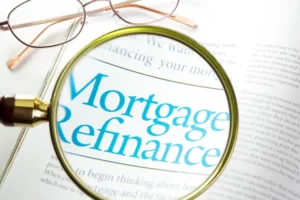
Collateral vs Conventional Mortgage Canada
What is a collateral mortgage?
First of all, when you obtain a mortgage, you have to put up security, usually a property. A charge is put against the title of your property. The type of charge can be collateral, or standard. Most people refer to the standard charge as a “conventional” mortgage.
So, what is a collateral charge, and how does it differ from a “regular” or “traditional” charge?
As mentioned already, when registering a mortgage, there are 2 ways that they can be registered in Canada.
- a standard charge and
- a collateral charge.
The standard charge is fairly straight forward.
The main difference between the two charges is that you have the ability to re-advance on a collateral charge back up to the (or even up to a certain amount over) originally registered amount.
The most important question is, what does this mean to a borrower? Let’s take a closer look with an illustration.
Let’s assume that your house is worth $500,000, you have 20 percent equity and therefore a mortgage of $400,000 ($100,000 of equity in the property). Traditionally, as you pay down that mortgage, with a conventional mortgage, your balance will go down, and you are unable to re-advance at all. Think of a car loan, as you pay it down, the loan balance goes down, and the car will become “yours” once the loan balance reaches zero.
A collateral charge, however, allows the lender to register the mortgage for a figure above and beyond the value of the home, perhaps the value of the home plus 25 percent on top of this.
Note, this is not the mortgage, but the value of the home plus 25 percent (or more in certain cases). Some institutions, such as Scotiabank, don’t even specify a limit.
Now, there are a couple of reasons why institutions do this.
The institution will tell you that it is a convenience for the client because, in a couple of years, after you have paid down say, $50,000 of your mortgage, you will be able to go back to the bank. Your mortgage balance is now $350,000, and you want to renovate your house, so you need $50,000. Well, rather than having to break the term and pay legal fees and incur costs, you will be able to now just borrow back up to the $400,000. You may actually be able to borrow beyond this amount, as it is likely that your home has increased in value over the last 2 years as well. So, you could borrow beyond that, based on how much they registered the mortgage for.
While it does seem very convenient at first glance, the reality is it is also a well disguised way of the lender to tie you in with them. I say that it is well disguised because this part, they don’t actually tell you about you.
Once you are tied into a collateral mortgage charge with one lender, the legal registration is only valid for them. If you want to switch your mortgage after your mortgage term is up, you can still do so, however you will have to pay legal fees all over again to register a new charge for the new lender. Now, this is not the end of the world, the legal fees are only around $1,000. What most of the people that we speak with when we have to deliver this news to them are upset about is that they were not aware of this, nobody had explained this to them.
This is what we at themortgagespecialist.com strive to do, is educate you in order for you to make an informed decision related not only to your mortgage, but your overall financial wellness.
If you have carried a mortgage for longer than one term, you are well aware that your current lender rarely, if ever comes back to you with an offer at renewal that is competitive.
So if you are thinking you can just move your mortgage at renewal if they don’t offer you their best rates, and that you are going to shop your mortgage at the end of your five-year term, while you can certainly still do so, you may need to prepare to have to pay for legal fees for switch to a new lender if you have a registered collateral mortgage.
Many lenders only offer Collateral Charge mortgages. TD bank and most of the Credit Unions in BC offer only collateral mortgages.
This is not to say that a collateral mortgage is bad, and that you should only stick with a conventional mortgage. In many instances, the collateral mortgage can be the only option, and it can be very useful. What is important is that you, as a consumer be aware of what you are signing.
This is our biggest concern here at themortgagespecialist.com, hearing from so many people that tell us that they are not even aware of the difference in charges,
It is another reason why you should consider using an independent Mortgage Professional who will look out for you and your interests.
There are other aspects of a collateral mortgage that you should also be aware of. You can find some more details here in this article, or you can simply reach out to us if you have any questions about collateral mortgages, or any other mortgage questions for that matter.
I’m Aleem Peermohamed Mortgage Specialist Vancouver and I am here to help.
- Note: This post on collateral mortgage vs conventional mortgage was originally inspired by a conversation I had with a client that was referred over to me for a mortgage switch or transfer, which is typically a pretty simple and seamless transaction, with no legal fees or any additional expenses incurred on the part of the borrower….in most cases….
Search Terms Related to Collateral Mortgage Charges
Collateral Mortgage Example, collateral mortgage discharge fee, how to get out of a collateral mortgage, td conventional mortgage, collateral mortgage rbc, conventional mortgage Canada, tangerine collateral mortgage, collateral mortgage reddit.
Collateral Loans, Collateral Note Form, Collateral Loans Real Estate, Collateral File Definition, Collateralized Mortgage Obligation, Collateral Security Mortgage, collateral charge vs mortgage
conventional vs collateral mortgage, difference between collateral and conventional mortgage, collateral vs. standard charge, collateral mortgage transfers
Articles Related To Collateral Mortgage Charge
Mortgage Rule Changes – 2012
Pre-Payment Penalty – Lenders Are Taking Action
Value of Mortgage Brokers Greater Than Ever
Mortgage Rule Changes have made Mortgage Brokers even more invaluable. In October of 2016, the entire Country was surprised by reports of considerable changes to mortgage rules announced by the Canadian Government. The Department of Finance Canada announced new mortgage rules that have since had a tempering effect on the market.
Canadian Mortgage Rates- How they are influenced by the U.S.
In the midst of the financial crisis, America’s equivalent of our central bank – the Federal Reserve- opted to lower its short-term overnight interest rates down to zero.Things did not stop there. The goal all along was to lower longer term interest rates, which are market driven and not directly influenced by the central bank…
BC Home Partnership Program
By now I’m sure that you have heard about the announcement by the provincial government yesterday surrounding down payment. This is some good news, although with some challenges that need to be addressed, and once the dust settles, will likely have a very small impact- but still good news nonetheless…
Did Buyers In August Overpay Just To Get a Low Rate?
I came across this article published in the Globe and Mail which I thought did a great job of explaining the phenomenon of people rushing out to buy a house to take advantage of lower rates. It just so happens that many people did this in August. Rates – when compared to historical levels…
Thank You for Paying it Forward
This year, I tried something a little different over the holidays. To each and every one of my clients, I sent out a $5 bill asking them to use this money towards doing something nice for someone….anyone, that they cross paths with – and encouraging them to “Pay it Forward.”
Mortgage Rule Changes – How they Impact the Consumer
All these changes impacted mostly those that have less than 20% down payment and therefore require default insurance (CMHC, Genworth or Canada Guaranty). Unfortunately, there are more changes to come. In fact, many of the lenders are already implementing these changes as I write this blog although these changes are mean to come into effect…
Bank of Canada Rate Announcement
Bank of Canada Announcement and Banks Announcing Mortgage Rate Drops is merely coincidence. Mortgage Rate Drops, independent of the bank of canada announcement, are expected in the near future due to spring market price wars. You have most certainly by now heard that about the Bank of Canada’s Announcement a couple of Wednesdays ago regarding their overnight lending rate drop.
Less Money Down Means Lower Rate?
Loan Mortgage Down Payment, Canada – I’d like to address something that has come up in my conversations with other experts in the industry, that being the topic of interest rates and their relationship with down payment. Although, it doesn’t make a whole lot of sense, what is happening is a lower down payment on a home…
Pre-Payment Penalty – Lenders Are Taking Action
The initial reaction of the lenders comes to no surprise. Many are putting up resistance and some of them are saying they are confused. The reality of the situation seemingly is that the lenders themselves were not quite sure how their penalties were being calculated. I witnessed this firsthand towards…
Mortgage Rule Changes
These are significant changes to Canada’s lending landscape and I’ll weigh in on the potential outcomes and implications throughout the day on my blog. As always, if you have any questions or concerns, I’m just a phone call away…
If you would like more information or a free consultation contact Aleem below, and as a Certified Mortgage Specialist let me help you get the home of your dreams. Great Mortgages, Made Simple





